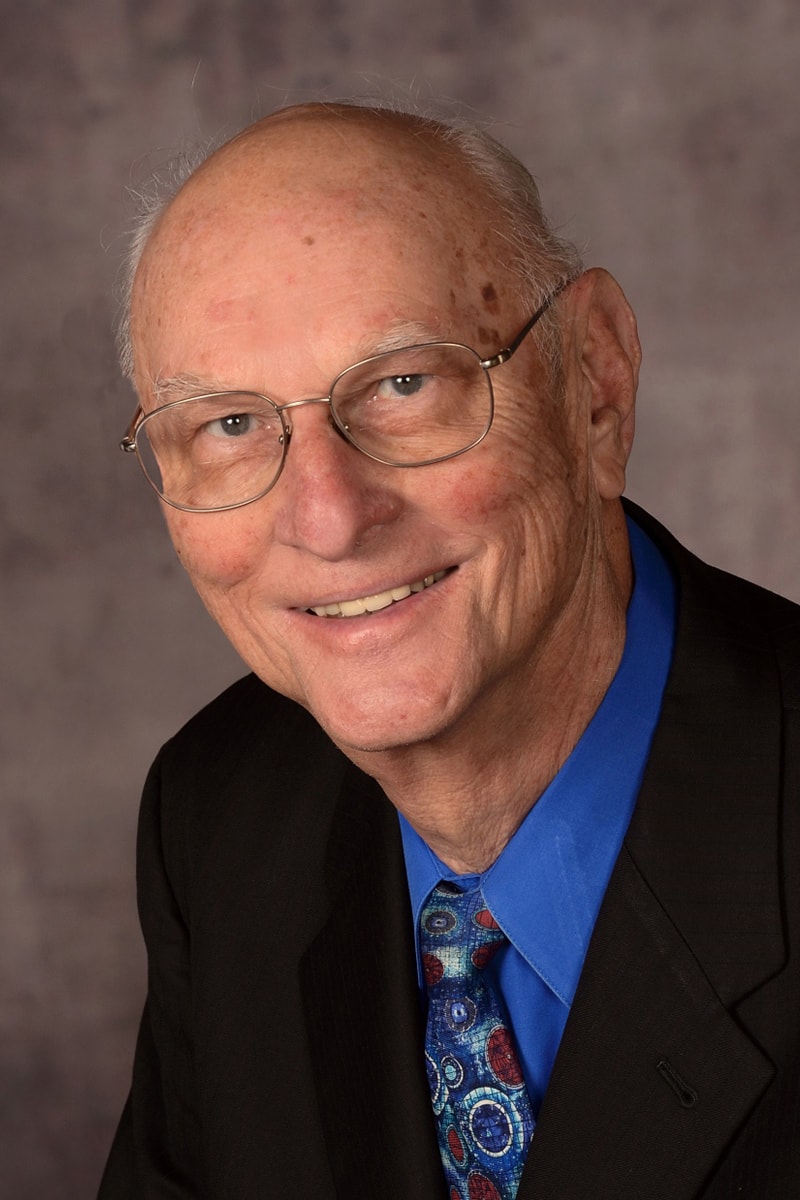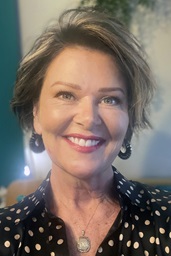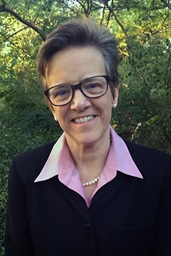
Bishop Richard Wilke.
An official portrait courtesy of the Council of Bishops.
Nearly 35 years ago my wife, Julia, and I wrote the first Disciple Bible Study, an in-depth curriculum that eventually numbered four studies in all. Almost 3 million people around the world have taken at least one of the studies.
Among my greatest joys has been hearing the countless stories of how Disciple has changed lives, inspired calls to ministry, restored marriages, and healed and strengthened congregations. Understanding how God has used this study to bring positive change to our church has been both rewarding and humbling.
That is why the current divide in our United Methodist Church over homosexuality breaks my heart. I have given my life to revitalizing the church and bringing people to Christ. I want to say that allowing this issue to separate us seems incomprehensible — but I suppose I can comprehend it on a certain level.
Thirty years ago our daughter Sarah shared with Julia and me that she is gay and that she had entered into a committed relationship. She came out to us when she was 27 years old. We never imagined this was anything that would touch our family. While I had never studied in depth the passages in the Bible that seem to condemn homosexuality, I felt the Bible was clear, and as a pastor and leader in the church I stood by what our United Methodist Book of Discipline said.
Commentaries
Now, however, I was facing this matter as a parent. The night that Sarah shared her news with us, Julia and I talked, and we were immediately at peace with knowing that her homosexuality was not a result of her upbringing. We had raised all four of our children in a loving, Christ-centered home. In one way or another, all of our children have devoted themselves to a life of faith and service in the church. Sarah heard a call to mission at a young age, and over the years she has served in United Methodist roles ranging from director of an inner-city community center to religious publisher. She is a lifelong member of the church.
The young woman before us that night wanted to be loved and accepted, but she wasn’t a troubled, tortured soul. She was happy and whole, and Julia and I believed that her sexual orientation was how God had made her. That night we learned something new about our daughter, but we loved and cherished her just the same, if not more.
Still, I knew I had some work to do. I needed to reconcile my commitment to scriptural authority with loving and accepting my daughter. Frankly, I was amazed at my lifelong ignorance about homosexuality. I had spent my ministry dealing mostly with the uses, misuses, and abuses of sex among heterosexuals. But I did not understand or worry about my energetic, popular youth fellowship leaders who never went out on dates. I was grateful for the Wesleyan Service Guild women, some of whom lived together and cared for each other for 50 or 60 years. I didn’t give any thought to the private lives they must have had or even the pain that their secrets must have inflicted.
So I began my own journey. I reached out to other families with homosexual members, and I listened to their stories of struggle in the church. And I began a more in-depth examination of the Scriptures that address the issue of homosexuality. You may be surprised to know I hadn’t fully done my homework here, but the truth is, if you have a big-picture grasp of the Bible as I do, then you will understand just how insignificant these few passages are.
How can I say anything in the Bible is insignificant? Because not all passages in the Bible were created equal. For example, the books of the minor prophets, such as Malachi and Obadiah, can’t be compared to the power and significance of Genesis and Exodus. There is a reason many Bibles use red letters to set Jesus’ words apart: The color highlights their importance relative to the surrounding text.
I also know very well about the danger of plucking a particular Bible passage out of its context and using it to prove something. No doubt some Scriptures ring with such timeless clarity that we don’t need to know their particular place in the Bible — passages such as “you shall have no other gods before me” and “love your neighbor as yourself.”
But generally, Scripture shouldn’t have to hide from its context. In fact, context often heightens — or diminishes — a passage’s meaning and significance. Remember, too, that Jesus is the Word made flesh. He is Lord, even of the Bible!
So keeping this understanding in mind, I took each passage that addresses homosexuality and examined its context. I looked at the story of Sodom and Gomorrah, which has been used over the centuries to claim that homosexuality is a sin — the so-called “sin of Sodom.” The angry townspeople were eager to rape and humiliate the strangers who were visiting Lot.
But I think it is fairly easy to see that the sin was not homosexuality but rather the townspeople’s violent inhospitality to strangers. I say “easy,” because you don’t have to look beyond the Bible to understand this. The prophet Ezekiel identified it when he wrote: “This was the guilt of your sister Sodom: She and her daughters had pride, excess of food, and prosperous ease, but did not aid the poor and needy.” In the Gospel of Luke, Jesus also implies that Sodom was guilty of ugly inhospitality.
We know, of course, that the Holiness Code in Leviticus and Deuteronomy forbids homosexual acts between men. But we forget the context: This code was designed for the specific purpose of setting the Jews apart from the Canaanites. It was not intended as a universal morality. It was peculiar to the Hebrews — and to the times. It reflected one side of the constant tension in Judaism, as well as in all religions, between exclusion and inclusion.
Neither Jews nor Christians obey the Holiness Code today. Christians eat shrimp because Jesus said, “It is not what goes into the mouth that defiles a person, but it is what comes out of the mouth that defiles.” We do not stone those who commit adultery because Jesus said, “Let anyone among you who is without sin be the first to throw a stone at her.” Nor would anyone today justify killing children who talk back to their parents.
The Apostle Paul does graphically list sins where women have sex with women, and men with men, but again, context is everything. Paul was familiar with only two kinds of homosexual activity: when wealthy Greeks would buy young boys as slaves and sexually exploit them, and when part of the Greek-Roman world would go to male and female prostitute-priests as a form of fertility or mystery cult worship. Neither of these ancient practices, of course, has any resemblance to the loving, faithful relationships that I witness in my family and among our family friends.
Fixating on those words also misses the larger point that Paul was simply trying to list every sin he could think of. He wanted to show that all of us have fallen short, that we are all sinners in need of the atoning grace of God. As I reflect on the list of sins, I know not a day goes by that I’m not in need of grace.
But Jesus and his ministry concern me most. Time and again, he deliberately focused on the marginalized. He healed the crippled, the demon-possessed and the sick. He performed miracles in the synagogue, although religious leaders scolded him that the labor and healing violated the Sabbath. A desperate woman, bleeding for years, an outcast, touched the hem of Jesus’ cloak and was healed. Our Lord forgave the prostitute who wept at his feet. He cured a Roman soldier’s servant, though the Jews despised the oppressive Roman occupation.
Samaritans were even more detested than the Romans. Yet Jesus upended all convention when he cast a “good Samaritan” as the hero of his parable.
The hatred and condemnation of others all seems to be the very opposite to both the action and the teachings of Jesus. He laid the groundwork for the church to accept Gentiles when he said, “I have other sheep that do not belong to this fold.”
Again and again Jesus placed kindness and acceptance over custom and social norms. “Love one another,” he commanded, “as I have loved you.” He also emphasized hospitality: “When you give a banquet, invite the poor, the crippled, the lame and the blind. And you will be blessed.”
If we are to be Christ followers, how can we reject the LGBT community in light of Jesus’ ministry?
And yet, make no mistake, I am not condoning sin. As I’ve said, I’ve spent a lot of ministry doing pastoral counseling, dealing with people with various sexual issues. I believe sex, like fire, can do a lot of harm and a lot of good. There are many sexual sins that are foreign to faith, among them prostitution, pedophilia, rape, promiscuity and exploitation. But I also believe from my own knowledge and personal experience that Christ Jesus can capture the heart of anyone — gay or straight — and lead them into faithful, stable and loving relationships.
I am proud to be among the many parents, filled with the love of Jesus, who are putting their arms around their gay sons and lesbian daughters. I am grateful that my daughter has experienced the joy of a 30-year marriage, and our family has been blessed by their relationship.
Nothing in my 70 years of ministry would lead me to believe that The United Methodist Church would or should divide over these few misunderstood passages of Scripture. I am offering this message because, I believe that Jesus is Lord of the Bible, and all of his teachings direct us to create a loving and inclusive community of faith. I ask for your prayers for the church. Lift your voice in affirmation of our great tradition and help us to find a way forward to heal, and not divide.
Christ beckons: “As the Father has loved me, so I have loved you; abide in my love.”
Wilke was bishop of the Arkansas Area from 1986 until his retirement in 1994. He and his late wife, Julia Kitchens Wilke, together created the acclaimed Disciple Bible Study series and co-founded the Institute for Discipleship that bears their name at United Methodist-related Southwestern College in Winfield, Kansas.
News media contact: Vicki Brown at (615) 742-5470 or [email protected]. To read more United Methodist news, subscribe to the free Daily or Weekly Digests.
Like what you're reading? Support the ministry of UM News! Your support ensures the latest denominational news, dynamic stories and informative articles will continue to connect our global community. Make a tax-deductible donation at ResourceUMC.org/GiveUMCom.



